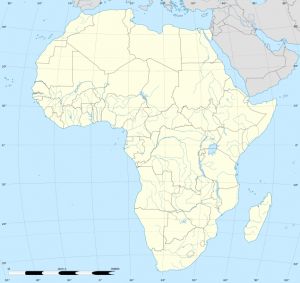scientific edition of Bauman MSTU
SCIENCE & EDUCATION
Bauman Moscow State Technical University. El № FS 77 - 48211. ISSN 1994-0408
21.10.2012
The following is a guest post by John D. Holm, the former director of the Office of International Education and Partnerships at the University of Botswana and director of international programs at Cleveland State University.
 International-development experts have expressed much concern about the brain drain of African scholars to universities in North America and Europe. Largely neglected in this discussion is the movement of academics taking place within Africa itself. This exodus occurs in two forms: scholars obtaining top-level jobs outside of academe in their home countries, and scholars migrating to better paying university jobs in more developed African countries.
International-development experts have expressed much concern about the brain drain of African scholars to universities in North America and Europe. Largely neglected in this discussion is the movement of academics taking place within Africa itself. This exodus occurs in two forms: scholars obtaining top-level jobs outside of academe in their home countries, and scholars migrating to better paying university jobs in more developed African countries.
In almost every case, the universities losing talent are also losing the time and resources they spent to cultivate their faculties. In one way or another, the universities often have mobilized considerable funds for their professors to receive four or five years of graduate education in the developed world. They have also in many cases provided research grants and money to travel to conferences.
As a director of international programs at the University of Botswana for four years, I witnessed this indigenous African brain drain up close. Every year it seemed somebody from the law department was recruited to be a judge. I watched as nongovernmental organizations poached at least three of the best female academics for jobs within Botswana. For-profit universities, almost all foreign owned, regularly recruit local Ph.D.’s from the university to give them a local face. Foreign-owned businesses in Botswana are always on the lookout for faculty trained in business, science, and engineering. The government itself has not held back. It has cherry picked at least two of the university’s best administrators for top roles in education. Finally, a number of academics find that their services as consultants are so in demand that they can easily make a much better income as self-employed contractors than working at the university.
Further depleting academic staff at the university is a brain drain to South Africa. Every year at least one faculty member leaves for a very sizable pay raise to work at a university to the south. There is, however, one difference with the internal brain drain and the one to South Africa: Most of the university’s former faculty come back after a year or two. They find the social environment in South Africa much more conflicted and competitive. Also, they feel they are treated as foreigners rather than fellow Africans. And some are surprised that taxes are often higher than they expected. On the other hand, those who leave the university for jobs within Botswana almost never return to academe in any capacity.
Most discouraging is that those leaving are often among the best and brightest. They are creative, ambitious, often charismatic, and almost always top leaders. The result is that the full professor ranks at the university have very few locals and a sizable proportion of expatriates, particularly from other parts of Africa.
full text of the article: The Chronicles of Higher Education
| Authors |
| Press-releases |
| Library |
| Conferences |
| About Project |
| Phone: +7 (915) 336-07-65 (строго: среда; пятница c 11-00 до 17-00) |
|
||||
| © 2003-2024 «Наука и образование» Перепечатка материалов журнала без согласования с редакцией запрещена Phone: +7 (915) 336-07-65 (строго: среда; пятница c 11-00 до 17-00) | |||||



